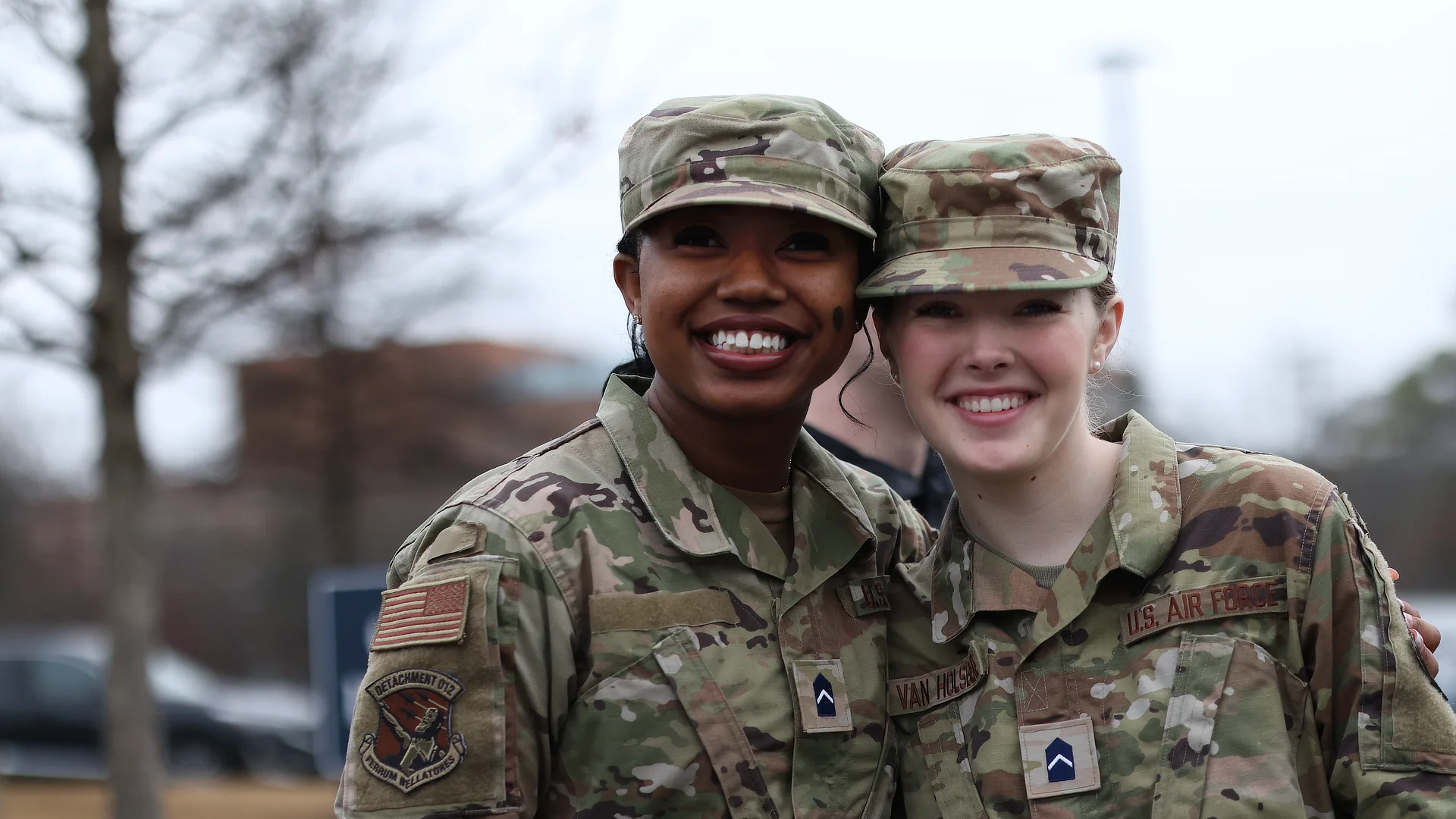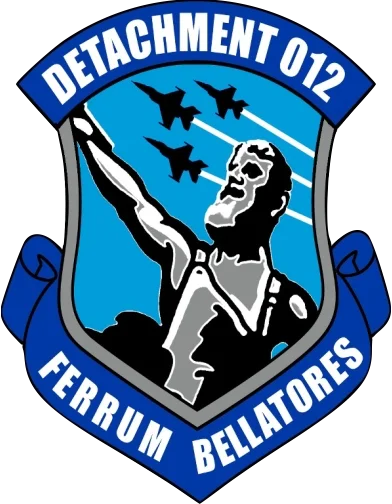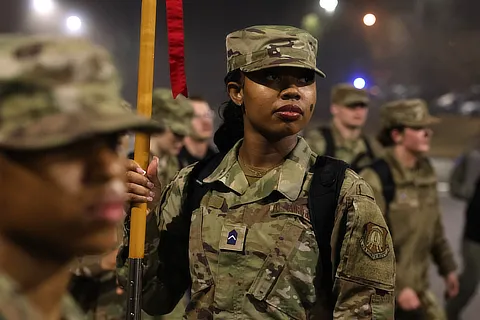Menu
- Home
- About
- Academics
- Admission
- Athletics
- Event Calendar
- Giving
- News & Media
- Samford Communities
- Student Life
- Search
Air Force ROTC | Samford University



Detachment 012 Iron Warriors




Air Force Reserve Officers’ Training Corps (AFROTC) is an educational program designed to allow Birmingham area students to earn a commission in the United States Air and Space Forces while pursuing a college degree in almost any academic major.
Air Force ROTC develops the leaders of tomorrow by preparing students to become U.S. Air Force or Space Force officers while earning a college degree. In AFROTC, you’ll not only build lifelong friendships, but you may also have the opportunity to pay for school through our scholarship programs. Most importantly, unlike many other college students, you’ll have a rewarding career after graduation. AFROTC allows graduates to pursue various career fields, including aviation-related jobs, law, space operations, medicine, intelligence, computer systems, engineering, and many more. You can take part in this unique experience for up to two years as a first and second-year college student without a military commitment. The AFROTC program at Detachment 012 is open to all college and law students at Samford University, University of Alabama at Birmingham, Miles College, Jefferson State Community College, University of Montevallo, and Birmingham Southern.
Cookie Preferences | Privacy Policy | Software Plugins
Microsoft Excel®
Microsoft Power Point®
Microsoft Word®
Adobe Portable Document Format






